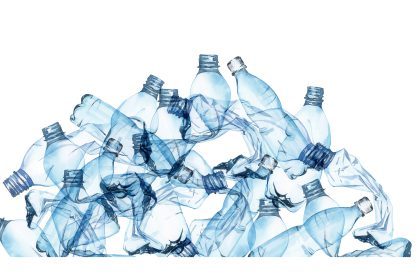
This new Spanish Law follows, among others, the EU Directive 2019/904, of 5 June 2019, on the reduction of the impact of certain plastic products on the environment and the European Strategy for Plastics in a Circular Economy published by the European Commission in 2018, which establish the EU-wide rules to prevent littering; making the plastics economy circular; tackling sea-based sources of marine litter; and ensuring we better understand and monitor marine litter.
Currently, less than a quarter of the plastic collected is recycled and half of that quarter ends up in landfill sites, which means a serious environmental impact, especially in the marine environment where, in Spain, this plastic waste accounts for around 75% of the waste found on beaches.
These new measures will protect the environment from plastic pollution through the 70% reduction in single-use plastics consumption by 2030 (e.g. beverage cups, boxes and containers for immediate consumption food). Furthermore, the plan included measures to marketing restrictions (e.g. cutlery, plates, straws, balloon sticks, expanded polystyrene containers and cups) and eco-design, marking and awareness-raising to inform consumers about waste management and the environmental impact of littering (e.g. plastic bottles, tobacco filters, sanitary towels, balloons).
The Spanish Plastic Excise Duty is an indirect, non-EU harmonized, on the consumption of single-use plastic products, containing non-recycled plastic, that are not designed to be refilled or re-used for the same purpose throughout their useful life.
The transactions subject to the Spanish Plastic Excise Duty are the manufacture, importation and intra-EU acquisitions of the following plastic products:
- Non-reusable containers made of plastic
- Semi-manufactured plastic products (intermediate products) intended for the production of non-reusable plastic items (such as thermoplastic preforms or thermoplastic sheeting)
- Plastic products intended to allow the closure, marketing or presentation of non-reusable plastic items (such as caps or lids)
The taxable person will be the entity manufacturing and/or carrying out the importation and the intra-EU acquisition of the products listed above, being subject to a taxable rate amounting to Eur 0,45 per kilogram of non-recycled plastic.
The Spanish Law establishes, among others, that products which are no longer for use/destroyed and/or which, although may perform functions of containment, protection or handling of goods, are not designed to be delivered together with them, will note be subject to the Spanish Plastic Excise Duty.
Likewise, as exempted transactions, we can highlight the importation or Intra-EU acquisition of non-reusable containers containing plastic whose weight of non-recycled plastic does not exceed 5 kilograms in a given month and those intended for medical or sanitary use.
Furthermore, the Law establishes some deductions and refunds for certain shipments of products to other Member States (intra-EU supplies) or third countries (exportation) or for products which are no longer for use/destroyed.
Regarding the formal and compliance obligations, manufacturers and intra-EU acquirers must register within the relevant Spanish Plastic Excise Duty Territorial Register (CIP code), keep accounting Ledgers to be e-filed on a monthly basis before the Spanish Excise Duties Authorities and submit the relevant tax return (Form 592).
The deadline to submit the relevant tax return (Form 592) will be the same as the Value Added Tax of the Company. At this point, we would like to remind that the amount of this new Excise Duty must be added to the taxable base of the Value Added Tax.
Importers will not need to register within the Spanish Plastic Excise Duty Territorial Register, but they have to assess the Excise Duty debt through the Import SAD and apply for the refund of the Excise Duty paid (if applicable) through the specific Form A22.
Regarding the invoices obligations, manufacturers of products subject to the Spanish Plastic Excise Duty on the first sale must issue an invoice -charging the Excise Duty-. In all other cases, the corresponding invoice must expressly state that the Excise Duty is included within the final price.
We remind all non-established companies that, in order to comply with the obligations of the Excise Duty, they must appoint a person to represent them, who has to be duly registered within the Spanish Plastic Excise Duty Territorial Register.
Finally, please note that both the accounting ledgers and Forms 592 and A22 must comply with the provisions of the Ministerial Spanish Plastic Excise Duty Order which, as of this date, is subject to the public hearing and information procedure.
How can we assist you?
Salinas & Partners with more than 30 years of experience in Excise Duties and Environmental Taxes is at your disposal if you would like more information, advice or assistance in relation to the new Spanish Plastic Excise Duty.




The new Spanish Plastic Excise Duty
https://www.cumminglocal.com/award-winning-happy-belly-kitchen-now-open-in-cumming/
The new Spanish Plastic Excise Duty
https://blog.bergamotroom.co.uk/2022/09/26/self-compassion/
The new Spanish Plastic Excise Duty
https://choopar.ir/contact-with-choopar/
The new Spanish Plastic Excise Duty
https://restaurantepopeyesroquetas.com/component/k2/item/9-spicy-sweet-potato-avocado?start=79780